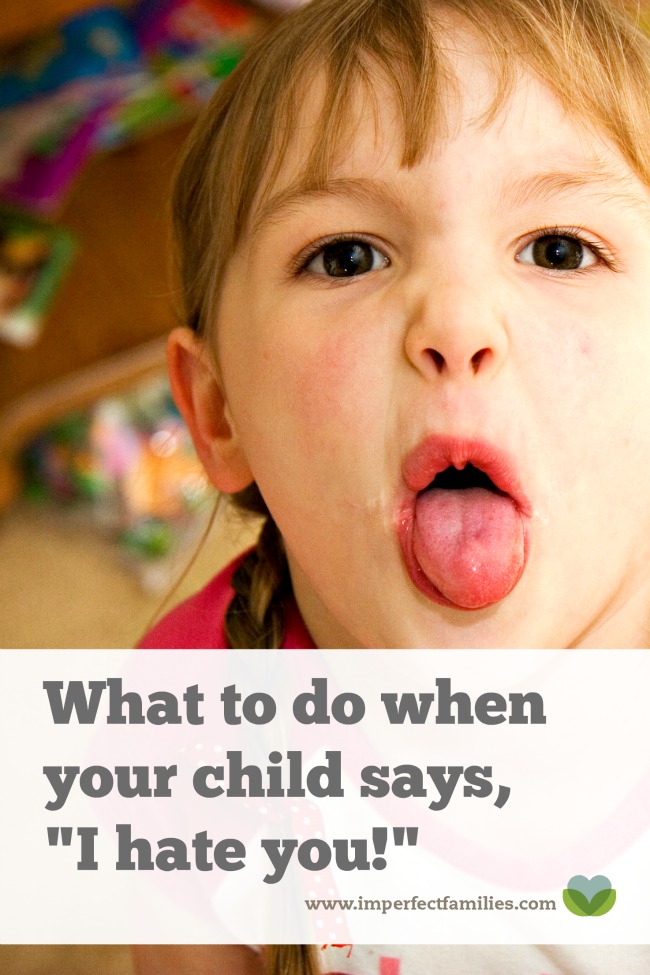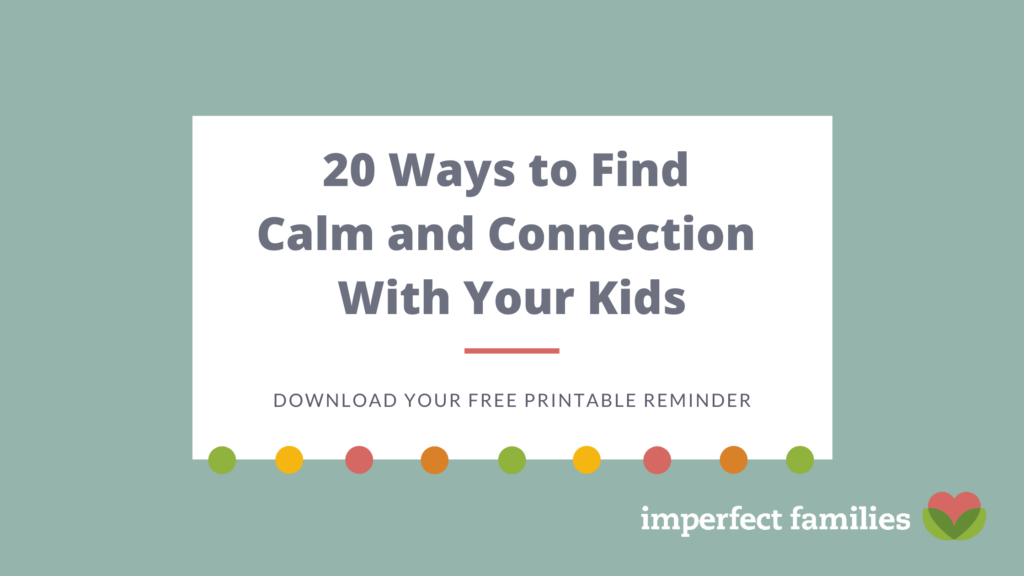
“I hate you!” he yells as he slams the bedroom door.
The words hang in the air as you stand there unable to move.
Within seconds, your body is flooded with anger. You bang on the door yelling, “How dare you say that to me?!”
And then a thought grips you.
Maybe it’s true. Maybe he really does hate you.
How do you respond?
If you’ve ever had the unfortunate experience of hearing your child say, “I hate you,” then you may be familiar with the jumble of emotions that follow. Confusion, frustration, anger, sadness, and hurt, just to name a few.
It’s out of these emotions that you try your best to respond: “You don’t mean that.” And, “Well, I love you.” Or, “That’s it! You’re grounded!”
Unfortunately, you’ve probably found that these responses don’t usually work. In fact, sometimes they make things worse.
In order to find a response that works, you need to see what is hiding behind your child’s statement.
Why kids say, “I hate you.”
The words “I hate you” are often an automatic response. They are easy to say and require little to no thinking. Plus, they pack an emotional punch.
But for most kids, this phrase is not exactly what they want to say. These words come from an emotionally reactive part of the brain, not a logical, thinking part.
If your child was calm, had alternative words to use, and felt safe expressing their thoughts to you, the phrase may sound something like:
“I’m upset with your decision.”
“I’m having trouble regulating my emotions right now.”
“I need your help solving this problem.”
“This seems unfair.”
“This situation is too much for me to handle.”
“I don’t know how to tell you that I’m upset.”
“I disagree with this plan.”
“I am sad and lonely.”
“I don’t feel heard.”
“I feel rushed, stressed, and pressured.”
Wouldn’t it be nice to hear these statements instead? You can! But it will take work.
Your Child Needs Your Help
I know you want a quick fix. You want your child to just stop saying it because you told them to stop saying it. Unfortunately, choosing a different response over the easier “I hate you,” is something your child needs to learn and practice.
Here are some tips for responding in the moment:
- Respond with Empathy: Put yourself in your child’s shoes. What was going on? How do you think they feel right now? “I know it seems unfair.” Or, “I can tell you disagree with my decision.”
- Set Firm Boundaries: Remind your child about acceptable ways to express their feelings by being assertive, and still empathetic, “Whoa! I can hear that you are upset and that phrase is hurtful.”
- Let the Dust Settle: Sometimes you can move forward with the conversation, but sometimes you need to give everyone a chance to cool down. This is not the time to punish or give a consequence.
Related: Beyond “Take a Deep Breath:” Help for Angry Parents
Of course saying, “I hate you” is not OK, and the disrespect needs to be addressed. However, when your child is in a heightened emotional state they are not ready to learn. They aren’t going to take your teaching to heart. And it won’t change their future behavior.
Once everyone is calm, you can address this unwanted behavior.
- Rephrase or Do-Over: Once everyone is calm, you can ask your child to express their feelings another way. If this is difficult, you can model it for them until they feel more comfortable, “You really wanted me to understand your story, and I was feeling confused. You felt frustrated.”
- Problem-Solve: Sit down together and talk about the underlying problem or the things that usually lead to your child saying, “I hate you.” Brainstorm solutions to the problem together. Role play different scenarios. Write out alternative phrases they could use or coping skills they could try.
- Build or Repair Connection: Sometimes, this phrase is a sign that your child is feeling disconnected from you. Instead of pushing your child away, bring them in closer! Focus on ways to strengthen your relationship. As your relationship improves, you may see a decrease in these angry outbursts.
Is there a bigger problem?
Maybe the words “I hate you” are the least of your concerns. Your child seems to be constantly angry, irritable, and unwilling to cooperate. Sometimes they become violent, throwing things, hurting themselves or others. You know your child. If you suspect that your child’s anger is getting too big, or if you feel overwhelmed by the thought of trying to help them manage their big feelings, please seek help from a mental health professional. Don’t wait and see if it gets better on its own. Therapy will give your child the skills they need to manage their big emotions in a healthy way.



Comments have been turned off to retain the privacy of all families. If you have a question or comment on the topic, you're always welcome to contact me.